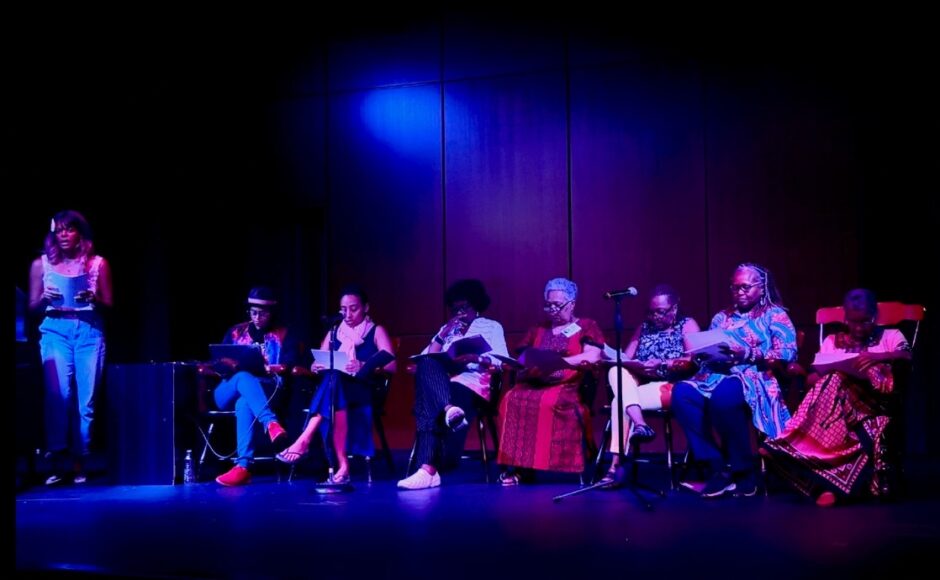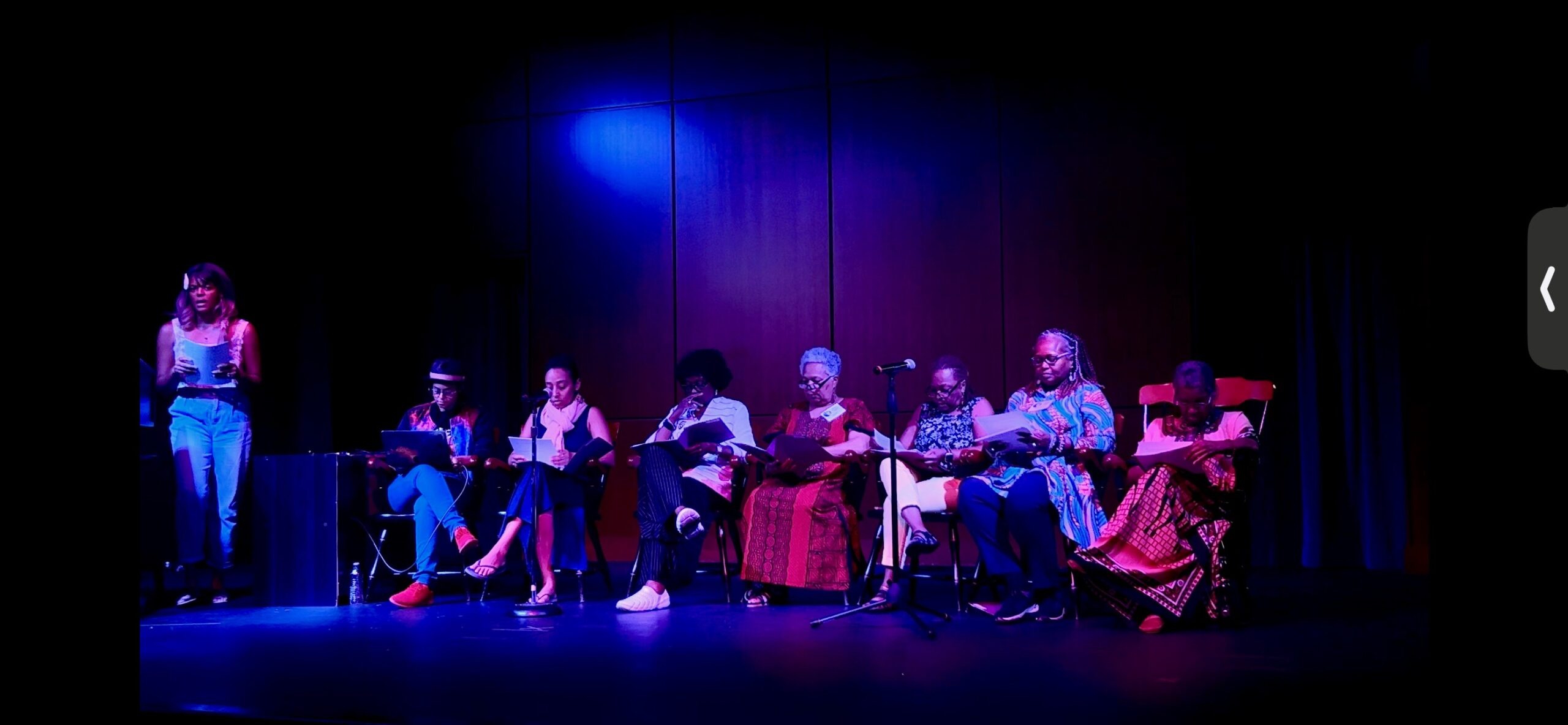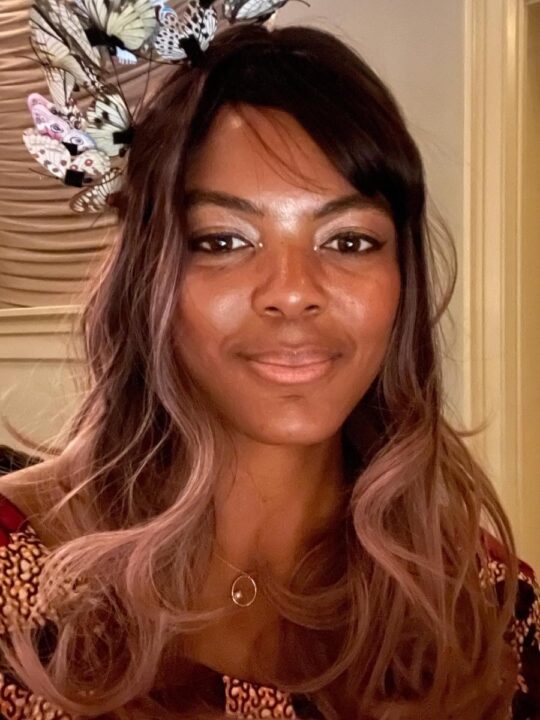The views expressed in our content reflect individual perspectives and do not represent the authoritative views of the Baha'i Faith.
Decades ago, at a time when there was a lot of violence in Washington, D.C., my mother’s friend asked an elementary school-aged Black girl what she wanted to be when she grew up. To her surprise, the girl said, “I want to be buried in a purple dress.”
“Our imagination can only picture that which it is able to create,” said Abdu’l-Baha, one of the central figures of the Baha’i Faith, at a talk in Paris in 1911.
This little girl’s imagination was devoid of any childlike wonder, hope, and innocence. It was heartbreaking. What trauma had this young Black girl experienced in her childhood? What had she witnessed in her short life that took her dreams away?
In 1991, the National Spiritual Assembly of the United States, the administrative governing body for the Baha’is in the U.S., wrote:
It is entirely human to fail if that which is most important to people’s self-perception is denied them–namely, the dignity they derive from a genuine regard by others for their stature as human beings. …Absence of the genuine regard for others fostered by such truth causes hopelessness in those discriminated against; and in a state of hopelessness, people lose the coherent moral powers to realize their potential.
My friend Dr. Toya Mary Okonkwo, a scholar, educator, artist, and Baha’i, wrote a powerful play about the importance of “storytelling in expanding Black girlhood imaginations as resistance to social erasure.” Her research involved interviewing Black women about their girlhoods in Stop Six, Texas. She shared that she also brought together “poetry and prose and art of Stop Six community members, interwoven with the centuries-old Moravian Church baptism records of enslaved people in the Caribbean, and Igbo storytelling to actually enact a radical praxis of using our place on the margin to see beyond the societal structures of caste and place.”
So, I was excited to interview Toya about why it’s important to honor the stories of Black women and girls and how communities can utilize writing and the arts to heal and, as Toya says, “become protagonists of our lives and envision a reality worth creating.”
Radiance Talley: Hi Toya! Thank you for taking the time to answer my questions. For the people who don’t understand the value of storytelling, can you please share why Black girlhood stories are important?
Dr. Toya Mary Okonkwo: A guiding question for all of my research is how to make the invisible visible. Our girlhood stories are important because we are important, even though traditionally we’ve been silenced or ignored by those who have the determining power of whose voices are centered. But even with this overwhelming oppression, we still found ways to share our joys and difficulties through creative methods that endure to this day. So many Black girls and women are missing and their stories don’t garner as much media attention — what are we to do when even our precious lives aren’t honored and valued in this society? We have to use what power we do have to educate and build up each other, to find beauty in the ordinary, and to take everyday stories and elevate them to the realm of what is considered important.
Radiance: How can we honor Black girlhood stories?
Toya: We honor Black girlhood stories by listening to them. One of the most enraging parts of my research was when I asked, “Why didn’t you ever say this before?” and the response was, “No one ever asked.” We have to value ourselves and each other, listen without offering our own opinions, and go to the people who have been outside what counts as a voice worth listening to — and do just that: listen.
Radiance: What can we learn from Black girlhood stories about enduring and rising from trauma?
Toya: We learn resilience! We learn that there is more to each of us than the horrible things we’ve inherited or experienced ourselves. We learn that there’s joy and compassion in knowing that our legacies of being luminous in the face of outrageous fortune and oppression have the deepest roots possible — and this is how we continue to grow, to rise. As Lucille Clifton said, “…Come celebrate with me that every day something has tried to kill me and has failed.”
This play is a celebration of just that — but also a reflection of the reality of what can and has happened as a result of the adultification of Black children as a result of American chattel slavery.
Radiance: How can the arts help people overcome trauma?
Toya: The arts help serve as an outlet for resolving trauma. You know, our brains are plastic, which means that they can change. But this takes time and effort and a crucial component is a well-developed imagination. We have to practice creating neuronal pathways that are healthy, when we recognize that something is going on with how we’re processing any type of traumatic event. Trauma that’s unresolved is what causes so much pain. Maya Angelou says, “You should be angry. You must not be bitter. Bitterness is like cancer. It eats upon the host. It doesn’t do anything to the object of its displeasure. So use that anger. You write it. You paint it. You dance it. You march it. You vote it. You do everything about it. You talk it. Never stop talking it.”
So, in this way of using the arts to combat the anger, but to not let it make us bitter, we change our neuronal pathways. We build new pathways with the plasticity of our brain, and we share this hope, this joy, this art with others, thereby inspiring them to take up the same mantle of the nobility of their humanity and become as luminous stars on the horizons of guidance.
Radiance: Can you explain how your play combats social erasure and honors the stories of Black women and girls?

Toya: I think by integrating the voices and stories of the women and girls of this neighborhood, I am helping to bring their experiences to light. Social erasure is what has happened to centuries of Black children not having the right to be treated as children. Dr. Joy DeGruy speaks of this in her work — how Black children are restrained even in a bank — not allowed to explore and be curious about the world around them because it is a matter of safety. This time of exploration and curiosity, though robbed in some of our childhoods, we can reclaim at any time. We can create spaces for Black people to have the safety and critical composition of imagination, of dreaming, or making our thoughts become reality.
And, most importantly, is the use of the metaphor of going from collapsing stars to quasars. This remembrance that we are made of light — our bodies, our entire physical reality is stardust. That we are part of a billions of years process of attraction, fusion, explosions, and celestial particles being dispersed across the universe to create our physical reality — this offers and honors a reality that cannot be erased by social forces that seek to oppress us. The cosmos offers us a way to order the chaos of what it can mean to be a Black girl or woman in this world — and my play tries to realign us with our true and luminous reality.
Radiance: Why is imagination important for Black girls?
Toya: Imagination is so important for combatting the effects of adultification on Black childhood. Saidiya Hartman says, “So much of the work of oppression is policing the imagination.” Our powers of thought are so powerful — powerful enough to change the world. Unresolved trauma can arrest the powers of our imagination — throwing us into a vortex of unconsciously playing out our past over and over — depriving us of the wonders of the present and the possibilities of the future. This isn’t to say we should forget the past, very contrary in fact, we should know the past so well that we can resolve to not repeat it.
Radiance: Would you like to share one of the stories from your research that especially moved you?
Toya: So many of the stories were really hard to hear. It’s hard to realize a place, that had for me been one of safety and childhood joy, was actually very violent and unforgiving and unrelenting to a lot of Black girls and women who lived there. In processing these stories, I had this image come to mind — of myself as a giant, using my body to protect these girls — generations of Black girls who had been harmed in both their public and private spheres of life. And so this comes up as imagery in the play:
Little Girl: God, I ask you to make me a giantess, a woman so big, when I step backwards I travel through time and disrupt this continuum, Lord let us not only rely on hopes of changing the future, lest we forget the women who have been sacrificed in our past, let us understand that this world isn’t permanent — and thus, we can imagine a way to protect what seems to have already been harmed…
Radiance: Thank you, Toya, for sharing this beautiful excerpt from your play! In part 2 of this series, Toya will use the metaphor of the formation of celestial stars, black holes, and quasars to “show how Black girlhood is actually the most luminous thing in the universe, though so much of it exists on the cusp of inescapable darkness.” Stay tuned!

















Comments
Sign in or create an account
Continue with Googleor